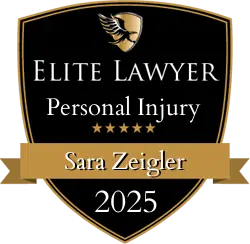Successful Recoveries
Uninsured Motorist/ Insurance Bad Faith
The problem:
Our client was traveling on a two-lane road in West Virginia in his work truck owned by his employer. While rounding a curve, a vehicle heading in the opposite direction lost control, crossed the center line, and caused a traumatic crash with our client’s vehicle. That crash caused serious injuries including compartment syndrome and resulting surgical procedures to his lower extremity. His injury caused substantial medical expenses, past lost wages, and lost earning capacity. Unfortunately, the at fault driver was uninsured at the time of the crash. Our client was fearful that he would never be able to work again and would not be able to receive compensation for his severe damages. Additionally, the uninsured motorist carrier for the employer denied coverage stating that the employer had not paid its insurance premiums. Based on the facts, we believed that was an improper denial of insurance coverage.
Our solution:
Our team filed a lawsuit in circuit court alleging that our client was entitled to recovery against the at fault and uninsured driver and was also entitled to a recovery from the employer’s and client’s insurance carriers. We included a claim for declaratory relief against the insurance company stating that they improperly denied coverage, added a count for declaratory relief against our client’s insurance carrier for uninsured motorist coverage, and alleged that the insurance company was acting in bad faith. Through the discovery process and litigation, we proved that the insurance company and its agent made false allegations and hid information in an attempt to avoid insurance coverage. After a significant amount of work, both insurance companies agreed to pay, and our client received a seven-figure settlement.
Phantom Vehicle/ Spoliation Case
The problem:
Our client was traveling on a two-lane rural road in Pocahontas County West Virginia when she was rounding a very sharp curve in her lane. While doing so, a logging truck traveling in the opposite direction crossed over the center dividing lines, and the rear tires of the logging truck trailer crashed into the front of our client’s vehicle. As a result of that contact, our client crashed violently into a nearby guardrail. The log truck kept driving, never to be found. The client suffered severe injuries, including fractures to her lower extremity which required surgical repair. A hit and run vehicle in West Virginia is called a “phantom vehicle.” If you can prove that the phantom vehicle contacted your vehicle causing injury, you are entitled to uninsured motorist coverage under your own insurance policy. Our client’s· insurance carrier denied coverage for our client’s serious injuries, claiming that we could not prove contact between our contact’s vehicle and the logging truck.
Our solution:
Our team went to work investigating the claim and determined that the insurance company was wrong in many ways. We determined that the insurance company had taken our client’s vehicle to a storage facility and later sold that vehicle for salvage before our client could obtain the proper evidence of contact between her vehicle and the logging truck. Our team filed a lawsuit in the circuit court alleging that the insurance company was guilty of “spoliation” which basically means that the insurance company failed to preserve evidence necessary for our client to prove her cause of action. We also alleged the insurance company was guilty of bad faith in its failure to afford coverage to our client. The insurance company hired an attorney, and we litigated this case. At mediation, the insurance carrier still offered zero dollars to resolve the claim. We continued to litigate this case over the next several months. A few days before the jury trial, the insurance company offered a sizeable six-figure settlement to resolve the claim. We settled the claim, and our client received the compensation she deserved.
Dog Attack with Serious Injuries
The problem:
Our client, a young female child, walked into a neighboring home to visit one of her friends. As she was in the kitchen, a Pitbull dog decided to violently attack our client. The attack caused serious injuries throughout the minor child’s body including multiple bite wounds, lacerations, and nearly tearing off the young child’s ear. Our client suffered substantial medical expense, permanent scarring throughout her body, and post-traumatic stress disorder as a result of the attack. It was determined that the dog owner rented the property, and that renter had no insurance of their own. The homeowner, who was the landlord, had homeowner’s insurance. That insurance company initially denied liability as they advised that they did not know a dog was even present within the household.
Our solution:
Our team went to work immediately and determined that the dog that attacked our client was a vicious dog that had been trained for fighting. In fact, while the dog was being quarantined at the animal control facility after the attack, someone broke into the animal control shelter and absconded with the dog, leaving the state. The authorities tracked the dog down out of state and brought it back to West Virginia where it was euthanized.
We were able to successfully convince the insurance carrier that their insured improperly inspected its rental property and failed to remove the vicious animal from their home prior to our client being attacked. We were able to obtain a 6-figure settlement for our client.
Once the court approved the minor child’s settlement, we worked with a structured settlement company to invest the child’s money so that she would have significant payments over a period of time after she turned eighteen.
Injury during ambulance transport
The problem:
Our firm had a case in which our client was injured while being transported in an ambulance. Subsequent to us receiving the case, the insurance company for the ambulance service became insolvent and was placed in receivership. The case was further complicated by the fact that our client was seriously ill and passed away during our representation.
Our solution:
We pursued the claim against the West Virginia Guarantee Fund, which is a statutory fund that resolves and pays claims against insolvent insurers. We were also able to obtain additional funds by settling with the client’s own automobile insurance carrier, under separate policies.
In this way, we maximized the uninsured motorist policy limits from both parties. These funds were made of part of our deceased client’s estate for the ultimate benefit of the family she left behind.
Auto accident
The problem:
Our client was injured in an auto accident. However, the investigating officer found him to be at fault and issued a traffic citation.
Our solution:
We believed the investigating officer had formed conclusions which were contrary to the proper interpretation of the mechanics of the accident, based upon the available evidence; therefore, we took the case.
The other driver’s insurance company initially refused to discuss settlement, but after we developed our case, we were able to negotiate a settlement favorable to our client.
Improper calibration of medical equipment
The problem:
Our client had a bad result from a corneal lens implant. Our investigation revealed that the ophthalmologist had failed to properly calibrate a piece of equipment prior to performing the procedure.
Our solution:
The doctor’s insurer was initially unwilling to discuss a substantial settlement of the claim. However, we enlisted the aid of a well-qualified ophthalmologist to prepare a report concerning the doctor’s departure from the applicable standard of care. Upon presenting this evidence to the doctor’s insurer, we were able to arrive at a settlement of the claim.
Medical malpractice
The problem:
Our client had a bad outcome from a medical procedure and believed that she was the victim of medical malpractice. Upon initial review, it appeared that a medical error might have caused her injuries.
Our solution:
We collected her medical records and sent them to a qualified specialist in that area of medicine for review. That specialist expressed the opinion that the doctor had not violated the standard of care, but that instead the adverse result occurred because of factors beyond the doctor’s control.
We explained the doctor’s findings to the client who was happy to have an explanation of what had occurred. By prior arrangement, our firm bore the cost of the document collection and medical review.
Workers’ compensation
The problem:
Our client was injured when his hand was pulled into an industrial machine at work, permanently disabling him.
Our solution:
Over the course of much investigation and written discovery, many depositions, and with the assistance of carefully selected experts, we developed strong evidence that the machinery was not properly designed to prevent this type of injury. The defendant apparently agreed, as a settlement was reached which will provide our client with a substantial monthly payment for the rest of his life.
Killed in a car accident
The problem:
We were approached by the family of a mentally challenged young man who had been tragically killed when struck by an automobile. Our investigation revealed that he had been referred by a mental health agency to a residential home, where he should have been supervised properly. Instead, he was allowed to leave the home because of negligent supervision and wandered into a roadway where he was struck and killed. Our investigation revealed no part on the fault of the driver.
Our solution:
Our firm filed suit against the referring mental health agency and the residential home. The court released the mental health agency, finding that it was not responsible for the young man’s death, and a judgment was obtained against the residential agency. Unfortunately, that agency had gone out of business, and had no known assets. However upon pursuing the matter further, we learned that the residential agency was covered by a liability policy, but that the insurer had denied coverage.
We believed that this denial was improper, and we entered into an agreement with the owner of the agency that we would not seek to execute on his personal assets if he would assign his claim against his own insurance company to our client.
We then used this assignment to proceed against the insurer for its bad faith practices in handling the claim, ultimately obtaining a seven-figure settlement.
Contract violation
The problem:
Our client felt it had been underpaid under the terms of a coal brokerage contract.
Our solution:
After much investigation and several years of litigation, a seven-figure settlement was paid to our client.
Automobile fire
The problem:
Our client was seriously injured in an automobile fire while assisting another motorist as part of his employment with the State of West Virginia. The other motorist, who negligently caused the fire, was without insurance. Our client’s insurance company quickly paid the $20,000 state-mandated uninsured motorist coverage. However, the State of West Virginia denied that he was also entitled to coverage under the state’s $1,000,000 uninsured motorist coverage, claiming that he fell within an exclusion to the coverage because he was also entitled to workers’ compensation coverage.
Our solution:
We stayed the case pending the resolution of an appeal of a different case involving the same issue, of which we became aware while building our case. After that appeal was concluded, we negotiated a settlement which provided sufficient up-front revenue for our client to purchase a home and a car.
A major portion of this recovery was placed in a “structured settlement” which will provide monthly income to the client and his wife. It also provides favorable tax treatment for that recovery.
Additionally, a special needs trust was created which will be the payee of the settlement funds, thereby allowing our client to continue to receive governmental assistance with his medical care, which is a substantial additional benefit in light of his serious burn injuries.










